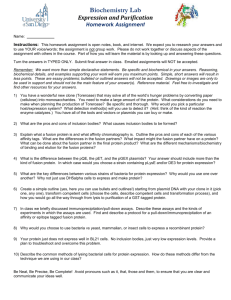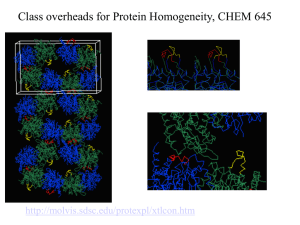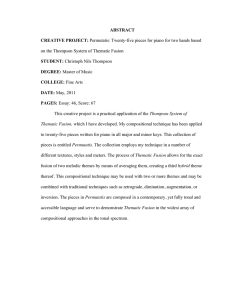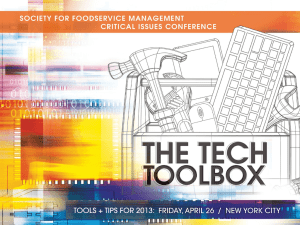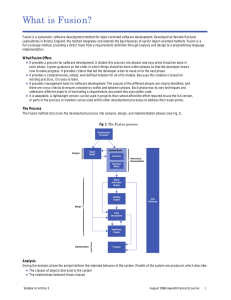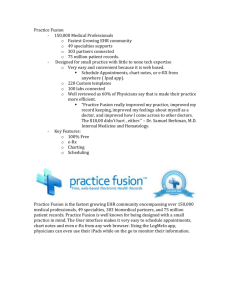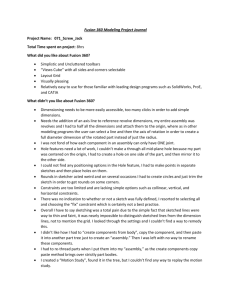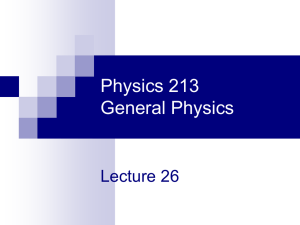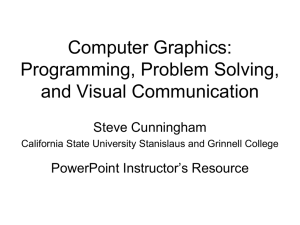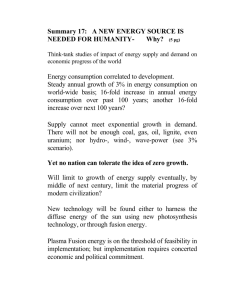Bridges wkshp handou.. - USF Computer Science
advertisement
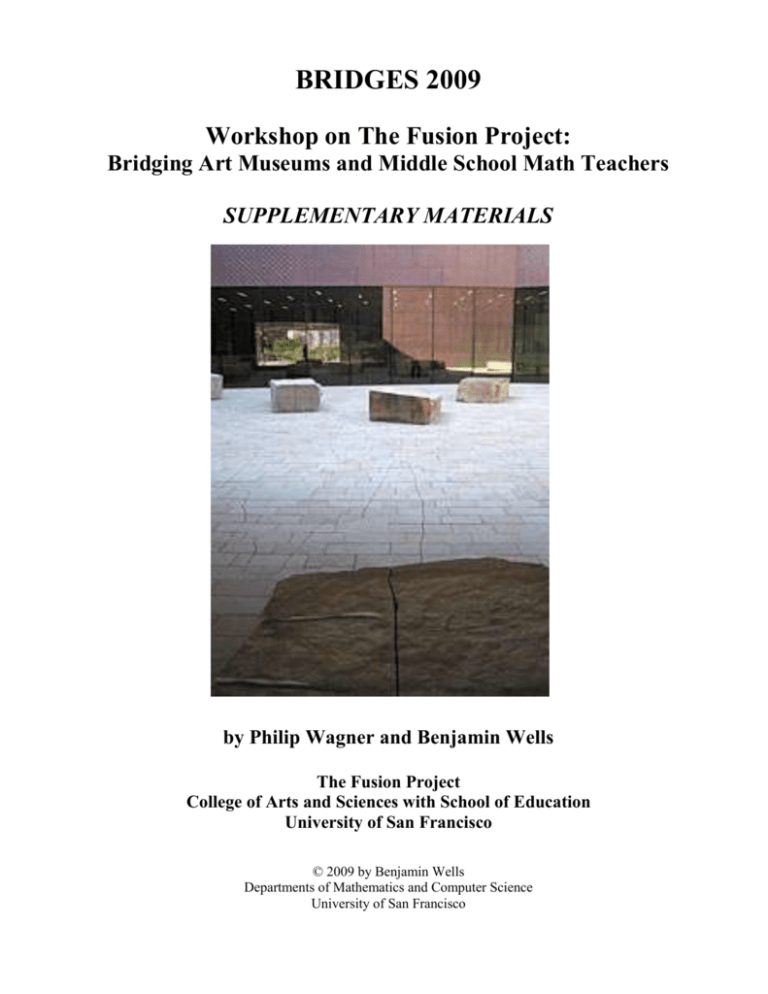
BRIDGES 2009 Workshop on The Fusion Project: Bridging Art Museums and Middle School Math Teachers SUPPLEMENTARY MATERIALS by Philip Wagner and Benjamin Wells The Fusion Project College of Arts and Sciences with School of Education University of San Francisco © 2009 by Benjamin Wells Departments of Mathematics and Computer Science University of San Francisco Workshop on The Fusion Project: Bridging Art Museums and Middle School Math Teachers by Philip Wagner and Benjamin Wells Introduction This packet supplements our workshop paper in the Bridges 2009 Proceedings by providing materials for a set of alignment exercises that will demonstrate important steps in the foundation of the Fusion Project, a new, distinct program of the University of San Francisco’s College of Arts and Sciences, assisted by the School of Education. Also included is a structure used for developing instructional material and forms that will allow you to contribute to the Fusion Project effort. You will find here: 1. Math problems similar to state standardized test items for the 7th grade 2. Scores for these 3. Sample state standards 4. Alignment grid for problems vs. standards, with places for scores 5. Target standard checklist 6. Table for extracting math topics related to works of art shown (thumbnails given here) 7. Alignment grid for standards vs. artwork and target coverage assessment 8. Table for extraction of math/art clusters 9. Core cycle form 10. Report form for Fusion Project suggestions: in this way, you will contribute to the USF program and refine it for adoption or adaptation elsewhere. We are here to help, and this is not a proprietary operation. Page 1 A D E B F C Page 2 G J K L H I Page 3 SAMPLE STANDARDS Numbers 1. +, x, –, / rational numbers (integers, fractions, and terminating decimals); (a/b)m 2. Convert fractions to decimals and percents; use in estimations, computations, applications 3. Add and subtract fractions by using factoring to find common denominators Geometry 4. Graph linear functions; note ∆y is same for given ∆x; rise/run = slope 5. Plot quantities whose ratios are constant (ft/in); fit line, interpret slope as ratio 6. Use formulas to find perimeter and area of elementary 2- and 3-dimensional figures 7. Estimate and compute area/volume of complex or irregular 2- and 3-dimensional figures by decomposition; scale volume and area 8. Identify geometric figures; construct with compass and straightedge (altitude, midpoint, diagonal, bisectors, circle parts, etc.) 9. Identify elements of 3-dimensional objects; describe skew lines, 3-plane intersections Reasoning 10. Analyze problems from relationships, relevant/irrelevant and missing information, patterns 11. Make and test conjectures by using both inductive and deductive reasoning Page 4 Page 5 WORKS OF ART Igbo door Gustav Grunewald Horseshoe Falls from below the High Bank Sol LeWitt, Four-Sided Pyramid Donald Judd, untitled, 1969 Martin Puryear, Bower Pablo Picasso, 3 Musicians Maya Lin, 2x4 Landscape Ellsworth Kelly, Spectrum Colors Arranged by Chance Page 6 Ruth Asawa, wire sculptures Roxy Paine, Maelstrom, Andreas Gursky, Union Rave Stairs at the de Young Museum Salvador Dalí, The Last Supper Page 7 Page 8 Page 9 NOTES Page 10 THE FOLLOWING STEPS CONSTITUTE A CORE CYCLE Problem 1 (driven by art) Concept / Technique A Concept / Technique B Concept / Technique C Application to Problem 1, and refinement Problem 2 (driven by math) ... Application to Problem 2, and generalization Alternate or Addition to Problem 2 Problem 3 (driven by art) ... Application to Problem 3, and review In the space below, consider outlining a core cycle for one of the works of art. Page 11 REPORT FORM FOR FUSION PROJECT SUGGESTIONS Name: ______________________ Email: ______________________ If you care to list some suggestions (questions are also invited and very helpful), you will contribute to the USF program and refine it for adoption or adaptation elsewhere. We are here to help, and this is not a proprietary operation. Page 12
